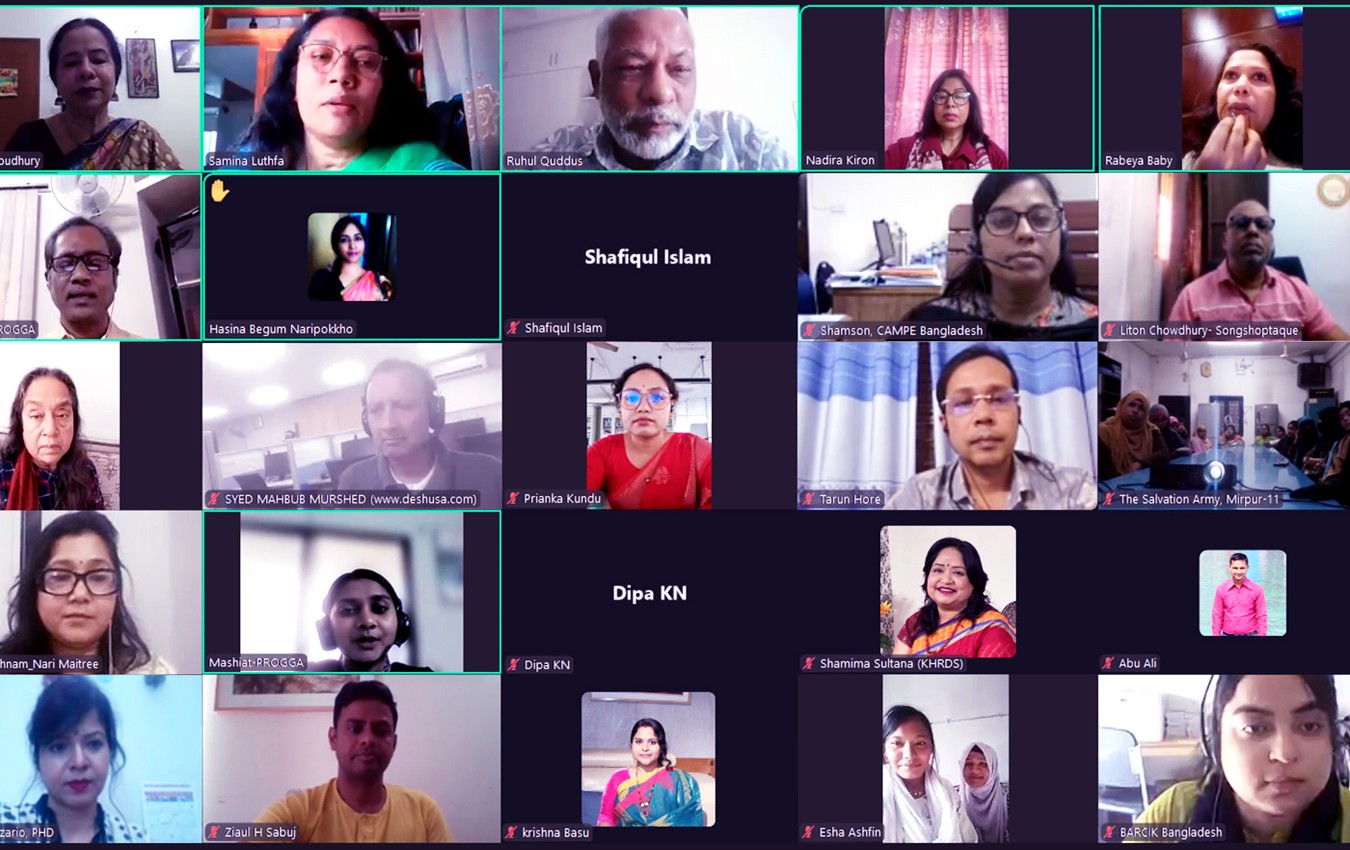News Flash

RANGPUR, Nov 25, 2025 (BSS) – A strong birth and death registration law is crucial for safeguarding women’s fundamental rights, including access to education, healthcare, social protection, and justice.
Although the government has committed to achieving universal birth and death registration by 2030, loopholes in the existing law act as a major obstacle to progress.
Experts made the observation today at a webinar titled “Stronger Registration Laws to Protect Women’s Rights,” organized by research and advocacy organization PROGGA (Knowledge for Progress).
The event was arranged with support from Global Health Advocacy Incubator (GHAI), in observance of the International Day for the Elimination of Violence Against Women-2025 with the theme ‘UNiTE to End Digital Violence against Women and Girls’.
Journalists, civil society representatives and subject experts from across the country joined the event.
The webinar was presided over by Executive Director of PROGGA ABM Zubair and moderated by Coordinator Mashiat Abedin, who also delivered the keynote presentation.
Rasheda K Choudhury, Executive Director of Campaign for Popular Education (CAMPE) and former Adviser to the Caretaker Government, joined the webinar as the chief guest.
Speakers noted that lack of birth registration makes it difficult to prove girls’ ages, putting them at increased risk of child marriage, which leads to higher levels of physical and emotional violence.
Early marriage also exposes adolescent girls to severe maternal health risks and higher maternal mortality.
Moreover, the absence of official registration contributes to human trafficking, and forces many women into unsafe or exploitative work.
In Bangladesh, death registration rates are particularly low among women without property, leaving their identities unrecorded even at the end of life.
To significantly improve birth and death registration among women, speakers stressed the need for legal reform that shifts the responsibility for registration from families to health facilities.
This would ensure that all births and deaths occurring in hospitals are automatically registered.
Currently, Bangladesh’s birth registration rate stands at only 50 percent and death registration at 47 percent, far below regional and global averages.
Rasheda K Choudhury said, “Gender disparities in birth and death registration render women invisible. To ensure every woman’s identity and rights, it is crucial to strengthen the Birth and Death Registration Act, 2004 through necessary amendments.”
Professor of Sociology at the University of Dhaka Dr Samina Luthfa said, “We must ensure birth and death registration for all women to protect rights and dignity of women in both personal and state lives.”
Bangladesh Country Lead of GHAI Muhammad Ruhul Quddus said, “Introducing hospital-based birth and death registration can bring every woman under the registration system to accelerate the achievement of SDG 16.9, which aims to provide legal identity for all.”
Other discussants at the webinar also included Co-convener of the Anti-Tobacco Media Alliance (ATMA) Nadira Kiron and Staff Reporter of the Daily Ittefaq Rabeya Baby.